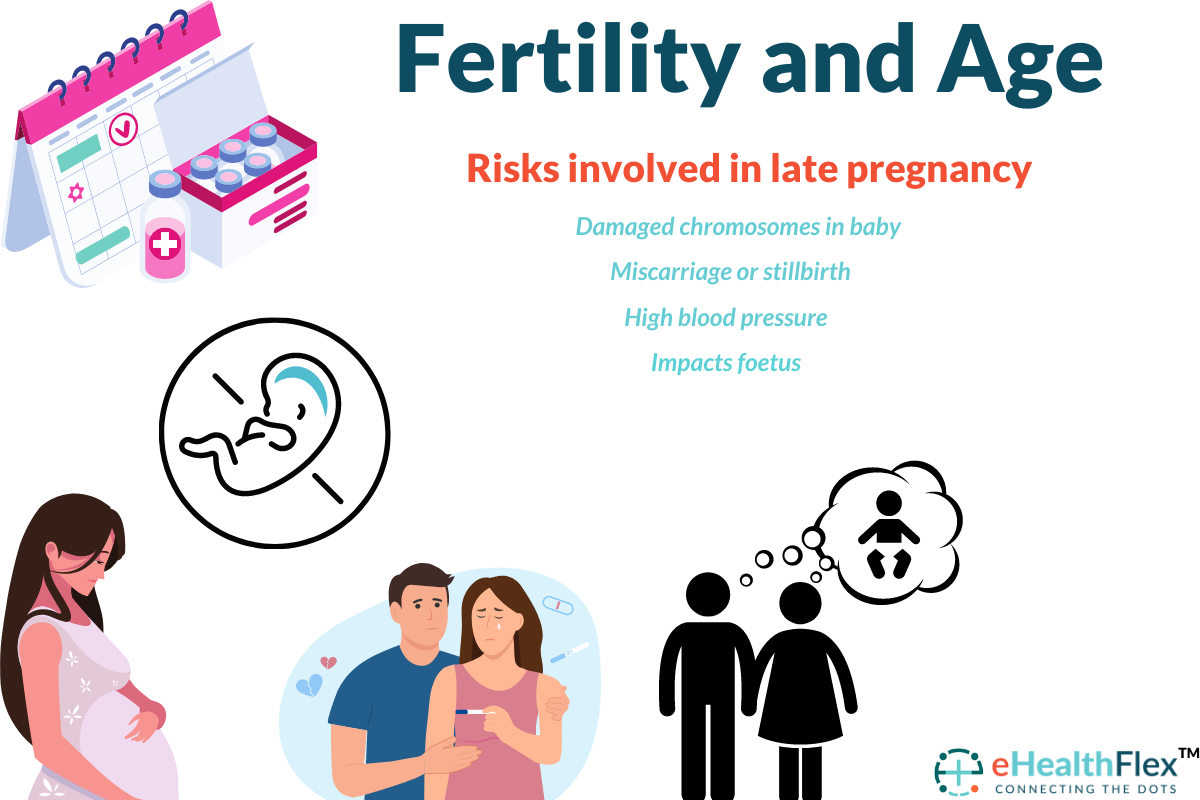

Age is a vital factor in fertility. A woman has higher chances of getting pregnant in her late 20’s. By the time a woman reaches 30, her chances of getting pregnant start declining. The number of eggs in a woman’s ovary decreases as she gets older. When a woman gets older and reaches 45, the fertility declines at a higher speed, and it becomes difficult to get pregnant naturally. Conceiving at this point of age can lead to disorders that impact the reproductive system. Moreover, the man’s fertility also declines as he gets older. A healthy couple can plan for a baby in their early 30’s which is considered as the right time for the eggs to become fertile.
One of the popular alternatives of conceiving for older couples is IVF. There are successful chances of getting pregnant with IVF procedures. However, age also plays a major role in IVF treatments. Couples who opt for IVF procedures should know that if the age of getting fertile is crossed, there are high chances of birth defects. Pregnancy through IVF can also have complications if the couple is older. Hence, it is important to plan a baby at an appropriate age. If any delay is faced, it is good to meet the ob-gyn
Risks involved in late pregnancy:
Publisher Name: eHealthFlex Team
Date: 20-03-2022